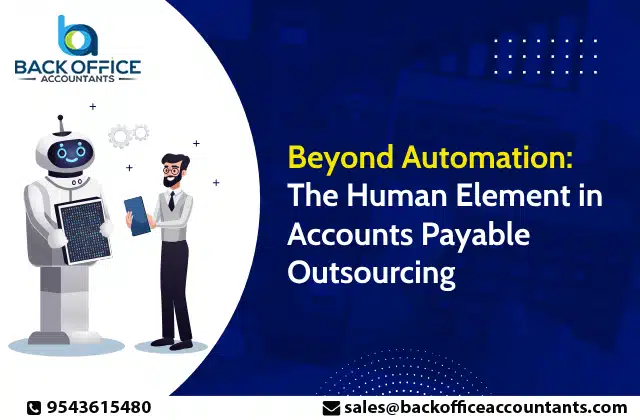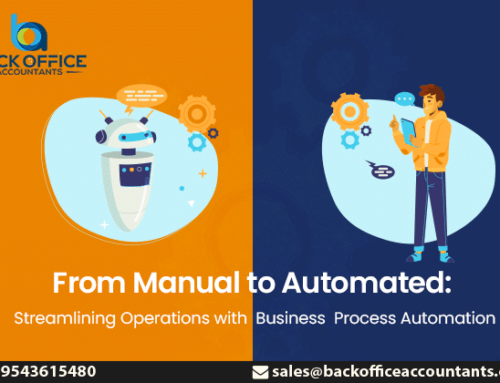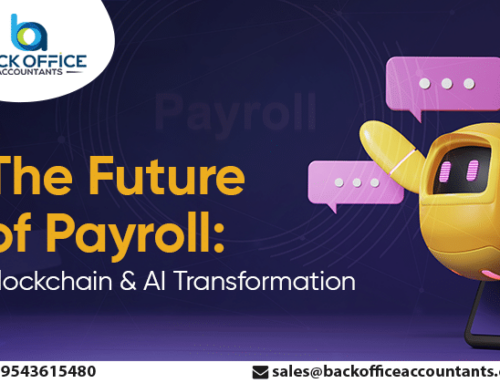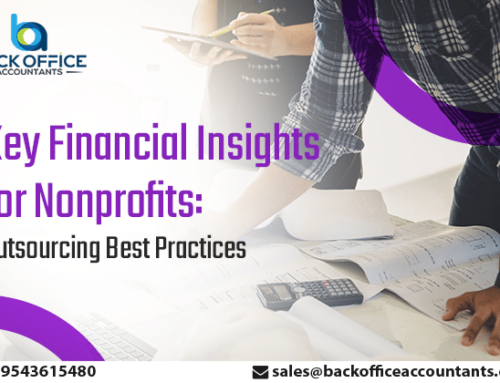Nowadays, automation has become the most vital part of the business world, because it changes routine processes for companies enormously. For example, in fields such as accounts payable outsourcing, a lot of tasks traditionally carried out by human hands are now donemore efficiently through the use of technology.
But with automation comes several problems. Although quicker and less prone to make mistakes than man, machines are unable to replace people in key areas such as decision-making and strategy. And they can have no direct influence over strong relationships with suppliers either. Let’s see why a balance between the human element and machine input in accounts payable outsourcing can help.
The Evolution of Accounts Payable Processes
Over the last ten years, accounts payable processes have undergone substantial change. What had been largely a manually intensive operation, with handwritten data entry and lengthy paper invoice approval cycles, increasingly became digitized.
Much of the manual work—invoice scanning, data capture, workflow automation, and payment processing—is now automated. As a result, businesses can now process transactions more quickly, make fewer mistakes, and eliminate the chances of fraud.
Nevertheless, human intervention still forms an intrinsic part of the accounts payable outsourcing cycle. Machines might carry out tasks, but they cannot make critical judgments or manage any number of complex and unique scenarios that arise in financial transfers. This is where people play a part so that businesses can stay compliant with the regulations and also maintain high levels of operational accuracy.
Where Accounts Payable Automation Falls Short
Accounts payable automation is very effective, it can handle a large number of transactions and reduces the manual error. Automatic systems may signal discrepancies, generate reports, and make payments automatically without anyone looking over their shoulder. But, there are several shortcomings that you probably don’t know about.
- Today, automation alone is incapable of handling all the fine details of financial management. For example, situations involving exceptions, complex contract terms, or disputes between suppliers often need human intervention to sort them out.
- You must also note that accounts payable automation lacks the judgment required for certain decision-making processes. While AI and machine learning can analyze trends, they do not have human intelligence that can make any decisions within particular contexts or provide emotions. This will lead to lost opportunities in various negotiation processes for most businesses and firms.
The Critical Role of Human Oversight
Where judgment and problem-solving are required, human expertise is highly valued and holds huge importance.
- Specialist finance professionals provide more than just technical expertise. They also offer an understanding of the wider, real-time business environment to firms that machines can never perceive or process, no matter how advanced.
- A Technology and human insight help companies manage routine and complex financial tasks efficiently. For example, human oversight is essential in compliance and regulatory issues.
- Financial regulations never stand still: maintaining compliance with them demands judgment and continuous attention. A well-trained back office team can make adjustments as necessary to dodge costly penalties and put the company in compliance with all the rules.
Enhancing Vendor Relationships
When it comes to managing relationships with vendors, nothing can replace the human touch. Anyone who understands how these relationships work will lead the industry. Vendors differ from partnerships as they require the company to meet all obligations promptly and make timely adjustments, big or small.
Automated systems handle payments but still require human input for communication, dispute resolution, and negotiating conditions. Only through hard work and trust can good vendor relations ever be built.
In the back offices of accounting firms, professionals manage accounts payable and receivable, ensuring timely invoice payments and effective income handling. Automation and human skills sustain cash flow and strong business relationships.
Benefits of Outsourcing with Back Office Accountants
To experienced firms like Back Office Accountants, businesses can outsource their accounts payable and accounts receivable services.
- With Access to automation tools and skilled financial staff lets you streamline operations and focus on complex tasks requiring human intelligence.
- Back office accountants specialize in accounts payable outsourcing and receivable services, providing tailored solutions for each business’s unique needs. You can focus on creating value while your financial operations run smoothly in the background.
Conclusion
Although automation has changed the way accounts payable outsourcing departments work, people are still indispensable. In today’s world, critical thinking, handling exceptions, and strong management require human intervention.
If you’re planning to outsource your accounts payable and accounts receivable while also remaining compliant and capable of making strategic decisions, try Back Office Accountants. They’ll simplify your company’s finances and help you succeed in a competitive market with their skills and creative solutions.







